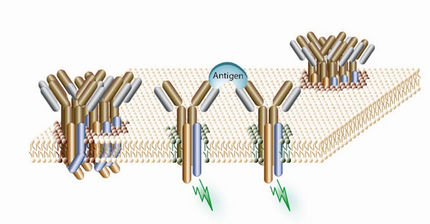New Scripps Research Monoclonal Antibody Destroys Methamphetamine In Vitro
Study Yields Potential Treatment to Help Combat Global Epidemic
Advertisement
Scientists at The Scripps Research Institute have developed a new monoclonal antibody that destroys the highly addictive drug methamphetamine. These new findings suggest an entirely new way to treat the global epidemic of methamphetamine abuse. The new antibody, called YX1-40H10 and tested in vitro, converts the drug methamphetamine into a benign substance called benzaldehyde. Benzaldehyde, which has a characteristic almond scent, is a simple compound often used in food flavoring.
"While animal studies have not yet been done, our results so far are significant and encouraging," said Scripps Research scientist Kim Janda, who led the study. "The difference between the final non-psychoactive compound benzaldehyde and methamphetamine couldn't be more striking."
Janda's laboratory is one of the pioneers in the study of immunopharmacotherapy, which uses antibody-based therapeutics as an innovative approach to control drug abuse. The immunopharmacotherapy approach is based on the idea that the body can be taught to produce antibodies that bind to a target before it can reach the brain. Recognizing a molecule that it ordinarily couldn't, the immune system can short circuit feedback from drugs of abuse - if there's no drug in the brain, there are no physiological rewards from drug intake. Antibody catalysts that convert drugs of abuse into inactive forms are potentially even more efficient agents than those that simply bind and sequester or eliminate the drug.
The new study shows that the YX1-40H10 antibody facilitates the conversion of methamphetamine to benzaldehyde through a process of photooxidation by binding riboflavin (vitamin B2) and visible light.
"What our findings suggest is that under appropriate conditions of riboflavin, light, and the right antibody, we can destroy a number of different antigens through photooxidation, and destroy them completely," Janda said.
Interestingly, the photooxidation reaction described in the new study can be inhibited by molecular oxygen. This could have future significance in developing methods to destroy selected molecular targets at oxygen-deficient sites. The photooxidation process described may also have additional implications for immune defense, autoimmune disease, and the treatment of cancer.
Original publication: Kim Janda, Yang Xu, Mark S. Hixon, Noboru Yamamoto, Laura McAllister, Anita D. Wentworth, Paul Wentworth, Jr.; "Antibody-catalyzed anaerobic destruction of methamphetamine"; Proceedings of the National Academy of Sciences 2007..
Other news from the department science
Most read news
More news from our other portals
See the theme worlds for related content
Topic world Antibodies
Antibodies are specialized molecules of our immune system that can specifically recognize and neutralize pathogens or foreign substances. Antibody research in biotech and pharma has recognized this natural defense potential and is working intensively to make it therapeutically useful. From monoclonal antibodies used against cancer or autoimmune diseases to antibody-drug conjugates that specifically transport drugs to disease cells - the possibilities are enormous

Topic world Antibodies
Antibodies are specialized molecules of our immune system that can specifically recognize and neutralize pathogens or foreign substances. Antibody research in biotech and pharma has recognized this natural defense potential and is working intensively to make it therapeutically useful. From monoclonal antibodies used against cancer or autoimmune diseases to antibody-drug conjugates that specifically transport drugs to disease cells - the possibilities are enormous























































